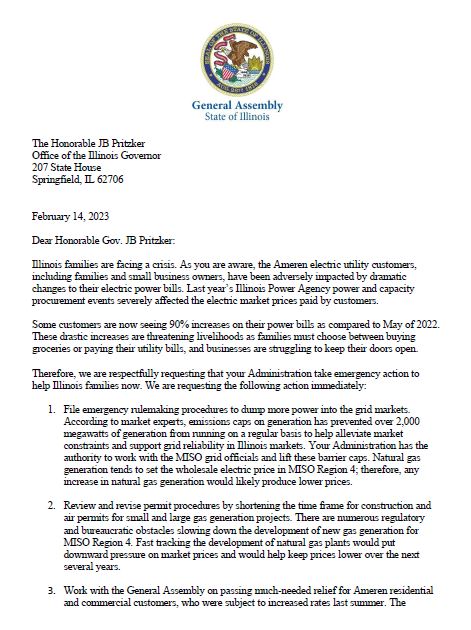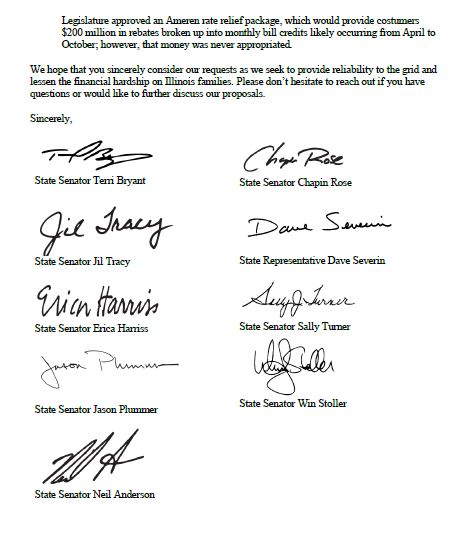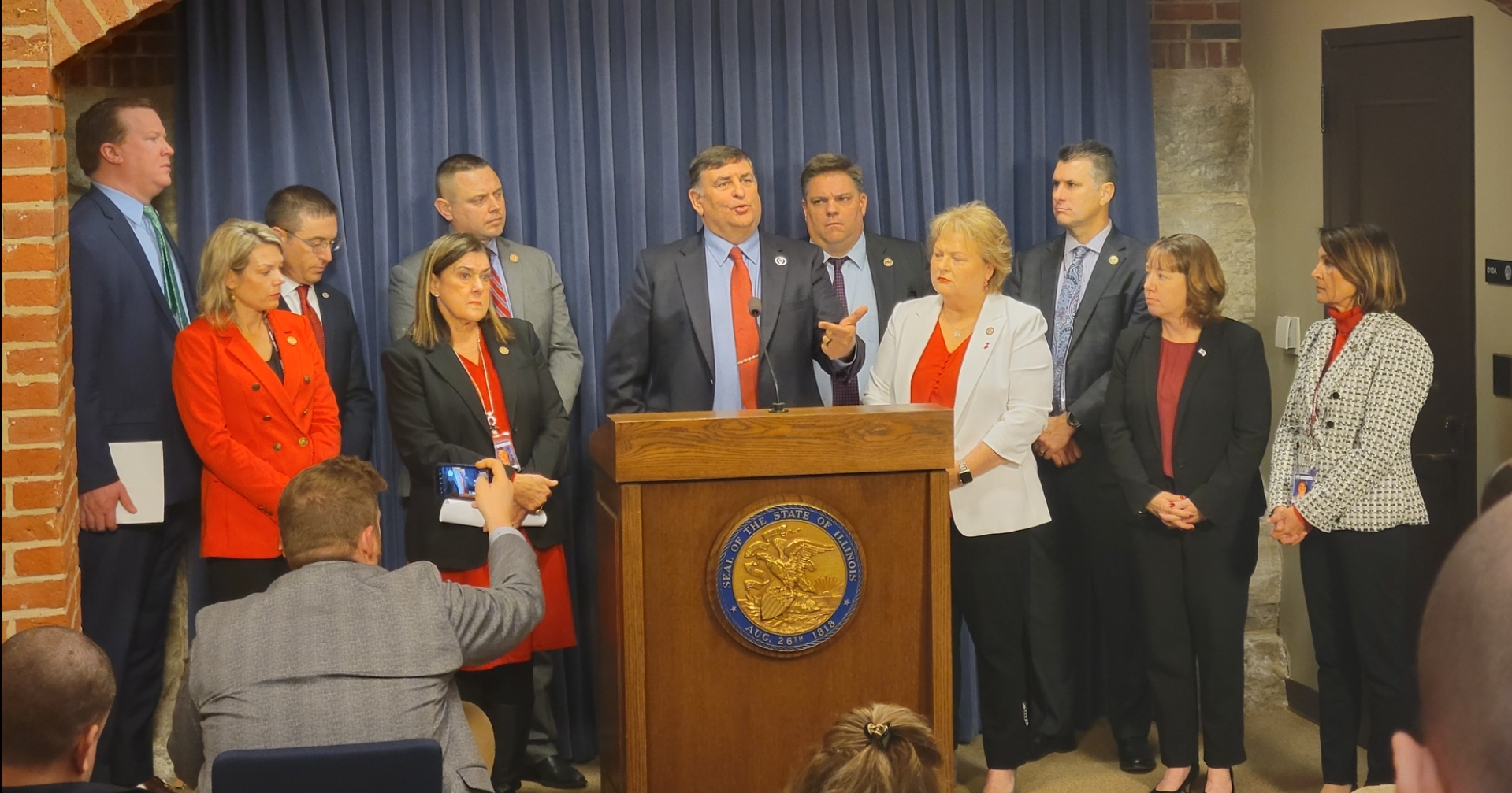Downstate Republican legislators point to energy concerns as 2023 priority and urge immediate relief to families struggling with power bills
Springfield, IL… Several downstate Republican legislators joined together at the Capitol Tuesday to a call for action to address the rising cost of energy impacting Illinois families and businesses.
“Do we pay our power bill or buy food to eat? That’s the question that far too many families are asking themselves,” said State Senator Chapin Rose (R-Mahomet). “This is an emergency situation, the Legislature needs to act quickly, and the Governor needs to step up.”
Gathering a day before the Governor’s 2023 Budget and State of the State Address, the legislators said providing long-term relief for Illinois families should be one of Gov. Pritzker’s top budget priorities and introduced a number of proposals for short-term relief.
Citing increases that have almost doubled some families’ power bills since May of 2022, lawmakers discussed Senate Bill 2200, filed by freshman State Sen. Erica Harriss, which would allocate $200 million in rebates to affected consumers. The legislature approved an Ameren rate relief package that would provide the average household with $170 in rate relief. The rate relief would be broken up into monthly bill credits likely occurring from April through October. The program is subject to appropriation, and it has not been funded.
“These rebates already passed the General Assembly, but as of today no money has been appropriated to pay Illinois families,” said State Senator Erica Harriss (R-Glen Carbon). “I introduced this legislation to right this wrong and make good on these rebates the people deserve. This legislation is an immediate step in the right direction while we continue to work for long-term relief.”
While State Senator Jil Tracy said she hopes the Governor’s budget proposal on Wednesday will include long-term solutions, she is taking matters into her own hands now by a pair of bills to address the need for greater energy capacity and supply.
Senate Bill 1548 would cut red tape at the Illinois Environmental Protection Agency, which has prevented new power plants from coming online in a timely manner. And Senate Bill 1547 would create the Power Grid Task Force, which requires the General Assembly to look at the impacts energy policies are having on Illinois’ ability to produce the required amount of energy.
“We have to start addressing this issue right now,” said State Senator Jil Tracy (R-Quincy). “We need more energy investments in the Governor’s budget and we also need to look at ways we can fill the demand of the grid so that consumer prices naturally go down.”
State Representative Dave Severin, who serves as the House Energy & Environment Committee Minority Spokesperson, is filing similar legislation in the House of Representatives and said it’s imperative that Illinois utilizes all forms of energy to adequately fulfill the state’s needs.
“State and national policies on energy production have shifted from independence to dependence, from using our vast reserves of clean, cheap, reliable, and efficient resources to prioritizing renewable technologies that just aren’t ready to fulfill our needs,” said State Representative and House Energy & Environment Minority Spokesperson, Dave Severin (R-Benton). “Make no mistake, I am for an ‘all-of-the-above’ approach on energy production, but an ‘all-of-the-above’ approach is not what we have.”
While Illinoisans await action on legislative measures to address energy costs and grid supply, legislators also sent a letter to the Illinois Environmental Protection Agency and Gov. Pritzker requesting the filing of emergency rulemaking procedures to dump more power into the grid markets and revised permit procedures to fast track the development of natural gas plants.
“We have more than 2,000 megawatts of clean, gas-generated power that Gov. Pritzker instantly infuse onto the grid with one decision to increase capacity and help lower costs for families and businesses,” said State Senator and Senate Energy Minority Spokesperson, Terri Bryant (R-Murphysboro). “Adjusting these caps is something we can do right now to ease the financial burden crippling our downstate communities. It is vital that we take these actions to set us up for success while we continue to build our diversified energy portfolio.”
###


